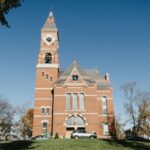The largest taxpayers association in Massachusetts, Citizens for Limited Taxation (CLT) will officially close its doors by the end of the year, leaving taxpayers in the Bay State a gift of $3 billion in tax refunds secured through CLT’s advocacy.
Forty-eight years as the voice of Massachusetts taxpayers, CLT fought since 1974 to reduce the tax burden on Massachusetts residents. The group was founded by businessman Edward F. King to oppose and ultimately defeat the fourth proposed graduated income tax constitutional amendment on the 1976 ballot.
Barbara Anderson was the longtime executive director of the organization since 1980 and a resident of Marblehead. She campaigned heavily for the bill prior to its addition to the 1980 ballot. Anderson passed away from leukemia in 2016.
Under Anderson’s leadership, CLT worked to successfully repeal a 1975 state income surtax and pushed for a cap on overall state revenue growth. As a result, $3 billion in income tax refunds to 3.4 million taxpayers under Chapter 62F, Massachusetts state laws, are now in hand or underway.
CLT’s and Anderson’s crowning achievement was Proposition 2 ½, the property tax limitation and fair market valuation law which put strict limits on the amount of property tax revenue a community can raise through real and personal property taxes. Anderson was considered by many to be the “mother of Proposition 2 1/2.”
CLT pushed for years to lower the income tax rate and succeeded with a reduction from 5.05 percent to 5 percent.
In 2019, current CLT Director Chip Ford said he regretted Anderson was not able to see the fruits of their labor.
Also in 2019, CLT worked with MassFiscal to oppose and defeat Gov. Baker’s multi-state Transportation and Climate Initiative compact and its accompanying gas tax hikes.
CLT Associate Director Chip Faulkner worked for CLT until his death in 2019 three years following Anderson’s, both at the age of 73.
Ford served as CLT’s co-director alongside Anderson since 1996 and became the executive director in 2016. He turned 73 last month and decided it’s time to step aside, three years after Faulkner’s passing.
“I think Chip Ford wants to retire and CLT is shutting its doors on a very high note,” said Paul Diego Craney, spokesman from Massachusetts Fiscal Alliance (MassFiscal).
“It’s a new era, time for new energy to move the tax limitation movement forward in Massachusetts,” said Ford, “For going on half a century CLT has carried the burden of leadership in that indispensable mission. The time has come to pass the tax limitation torch on to another generation. Fortunately for Bay State taxpayers, and especially for CLT members, Massachusetts Fiscal Alliance is positioned well to run with that torch.”
“We’re going to do everything we can to protect the laws that were passed by CLT, which includes the 5 percent income tax rollback that was passed in 2000… then you have Proposition 2 ½ which protects property owners… And then, of course, chapter 62F is what we talked about,” Craney said in an interview.
Craney said Massachusetts is the fourth-highest state in the U.S. for taxpayer out-migrations. “If you combine all the other New England states, we’re losing more taxpayers than all those states combined,” said Craney.
He said Question One, the “millionaires tax” approved by Massachusetts voters in November, will only accelerate the outward migration of taxpayers and specifically high-income earners. Every state wants to keep high-income earners because they pay a great amount of taxes, create jobs, and donate to charitable organizations.
“It’s not a debate, it is a fact,” he said. “Massachusetts has roughly 4.5 million taxpayers, and Question One will impact about 20,000 to 25,000 taxpayers every year, and I believe the number is about 2000 taxpayers earn about $5 million or more.”
Some of their plans for tax cuts are aimed at holding Gov. Elect Maura Healey accountable for her tax cut pledge, to hold the Massachusetts House speaker and Senate president accountable for their promises, and to continue the fight that CLT has done.


